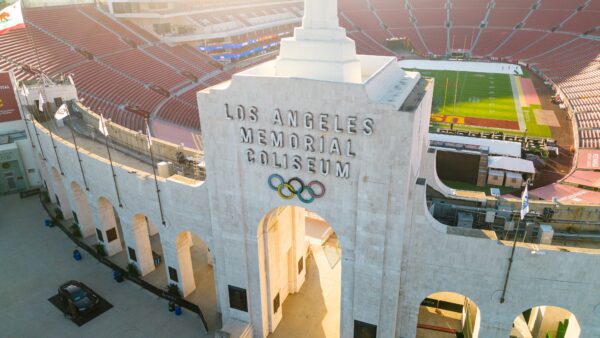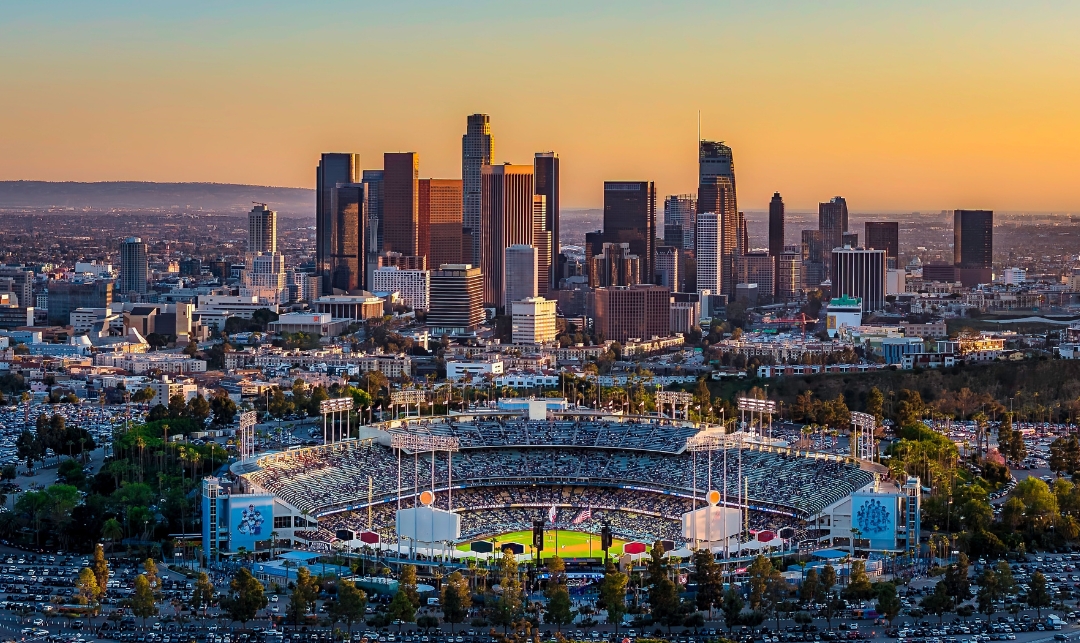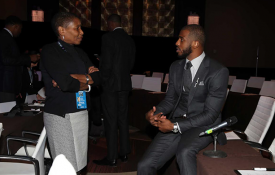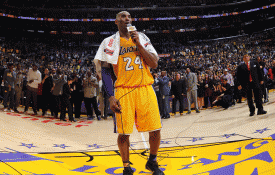The recent L.A. Sports Innovation Conference, put on annually by the Los Angeles Sports Council, was held this year at the new state-of-the-art Intuit Dome in Inglewood as the new home of the LA Clippers. Keynote speaker Stephen Cheung, president and CEO of the Los Angeles County Economic Development Corporation and World Trade Center Los Angeles, highlighted significant economic trends and opportunities in the realm of sports, particularly with the upcoming Los Angeles Olympics.
Here are a few highlights from Cheung’s remarks.
$11.7 BILLION IMPACT
This year, the professional sports sector in Los Angeles is projected to generate an astounding $11.7 billion in economic output. Plus, collegiate sports are contributing a robust $1.8 billion through 56 programs, supporting approximately 17,000 athletes. The ripple effect of this economic activity is vital for our community, with 83,000 jobs supported, directly and indirectly, by the sports sector, offering an average wage of $106,000.
CREATING NEW PATHWAYS
Cheung emphasized the increased entrepreneurial opportunities emerging from the sports ecosystem. He discussed how technology is playing a crucial role in shaping the future of sports, with innovations like facial recognition technology becoming standard. This creates job opportunities across various disciplines beyond traditional athletics, such as event management, tech development, and environmental sustainability.
As we look ahead, it’s essential to ensure the next generation of workers, including those previously displaced from other sectors, can successfully integrate into this evolving landscape and contribute to its growth. With increased investment in local communities, resilience and vibrancy are being bolstered, making the sports industry a key player in the regional economy.

Los Angeles Memorial Coliseum, home of the 2028 Olympic Games as well as the USC Trojans football team.
HARNESSING TECHNOLOGY FOR THE OLYMPICS
The upcoming 2028 Los Angeles Olympics is seen as a catalyst for enhancing L.A.’s transport infrastructure. Notable projects over the last two decades, funded by Measure R and M, have laid the groundwork for a more extensive transport network. With Westwood likely to emerge as a critical transportation hub during major events, the anticipated changes in travel behavior could redefine how Angelenos move throughout the city.
Cheung highlighted examples like the Taylor Swift tour, which not only increased Metro ridership but also showcased the importance of safety and access—factors that need to be maintained to ensure sustainable popularity of public transport.
REAL ESTATE: A TRANSFORMATIVE FORCE
The integration of sports into the urban fabric is also transforming real estate development in L.A. Two decades ago, Downtown L.A. lacked the vibrancy it possesses today, a change largely driven by investments such as L.A. LIVE. Similar transformations are underway in Inglewood, where training facilities and sports infrastructure are attracting new businesses and residents. As we look toward 2028, this trend will continue, with rugby and soccer making significant inroads and cricket gaining momentum due to its immense global popularity.
Cheung noted the strategic opportunities that arise from the connections being made through cricket, particularly with India, highlighted by former L.A. Mayor Eric Garcetti’s recent ambassadorship. The opening of a new consulate in L.A. and the introduction of direct flights to India signal a strategic focus on leveraging sports to fuel tourism and economic growth.

A view of Downtown Los Angeles (DTLA.)
EMBRACING THE FUTURE
In an era where sports is becoming an integral component of Los Angeles’ identity, the sector is not just rising—it’s dominating. From its role in bolstering the local economy to fostering community engagement and promoting entrepreneurship, the sports landscape is evolving rapidly. For L..A. to thrive as a global sporting capital, collaboration among stakeholders is essential, ensuring sustainable growth and investment in the health of the economy.
As we anticipate the Olympic Games and beyond, the narrative around sports in Los Angeles is not just about competition; it’s about unity, innovation, and the shared promise of a brighter, more dynamic future.
Michelle Edgar has built a career at the intersection of social impact, entertainment, sports, fashion, and culture. As a connector and founder, she has worked closely with talent, management, brands, and business leaders to ideate, strategize and build impactful marketing campaigns.













































